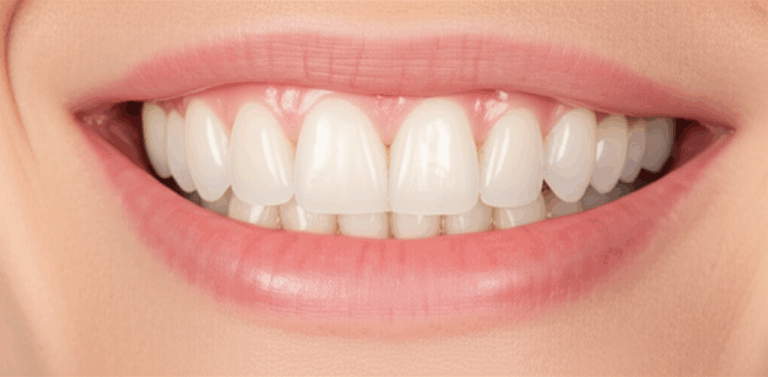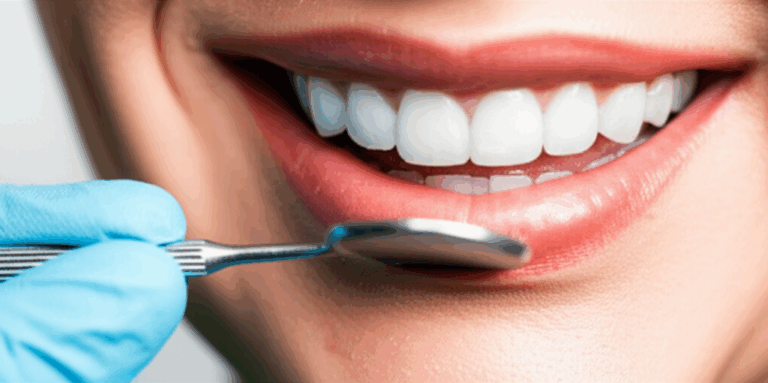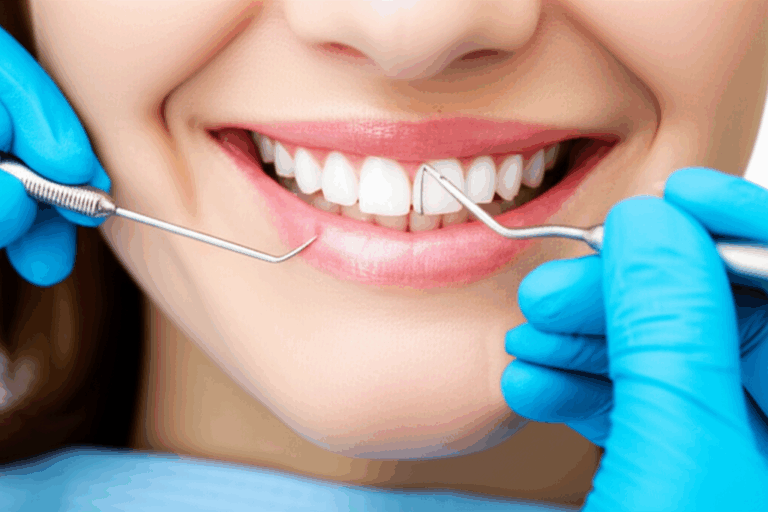
How to Help Your Child Overcome Fear of the Dentist: A Comprehensive Guide for Parents
Is your child scared of visiting the dentist? You’re not alone. Kids everywhere feel nervous when they walk into a dental office, and many parents worry about how this fear might affect their child’s health. In this guide, I’ll show you practical ways to help your child feel brave about the dentist. You’ll find out why children feel this way, what you can do before, during, and after the appointment, and when you should get extra help. This article is full of real-life advice that works—so your little one can smile bright for a lifetime.
Table of Contents
- Why Are Kids Afraid of the Dentist?
- How Can I Tell If My Child Has Dental Anxiety?
- What Can I Do Before the Dental Visit?
- How Should I Choose the Right Pediatric Dentist?
- How Can I Talk to My Child About the Dentist?
- Are There Ways to Practice at Home?
- What Should I Do During the Dental Visit?
- How do Dentists Help Anxious Kids?
- What Can I Do After the Visit to Reinforce Positivity?
- When Should I Seek Expert Help for Dental Phobia?
- Important Points to Remember
Why Are Kids Afraid of the Dentist?
Let’s be honest—dentists’ offices can seem scary to a child. The buzzing noises, shiny dental tools, and the smell of gloves all add up fast. Sometimes a child’s fear starts after a single bad time at the dentist, but that’s not the only reason.
Common Causes of Dental Anxiety:
- Past bad experiences: If your child once felt pain or heard scary sounds, it stays with them.
- Parental nervousness: Kids are smart. If you feel nervous about dental care, they might feel the same way.
- Fear of pain or needles: Even if your child never had a shot at the dentist, just thinking about “needles” can make them worried. It’s a natural fear.
- Loss of control: Lying in a big chair while someone looks in your mouth might make some kids feel helpless.
- New place: Strange smells, new faces, and weird equipment can be a lot for little kids.
Table: Top Reasons Kids Fear the Dentist
| Reason | Why It Happens |
|---|---|
| Bad Past Experience | Painful visit, noisy tools scare them |
| Parental Anxiety | Kids sense and copy parents’ fears |
| Fear of Pain or Needles | Worry about “shots” or hurting teeth |
| Loss of Control | Not knowing what’s coming makes kids worried |
| Unfamiliar Sounds/Smells/Sights | New clinic setting can feel scary |
If you notice these worries in your child, don’t ignore them. These are real feelings, and seeing the problem is the first step to fixing it.
How Can I Tell If My Child Has Dental Anxiety?
Sometimes, your child may not say, “I’m scared of the dentist.” Instead, they show it in other ways.
Watch for These Signs:
- Crying or tantrums when it’s time to go.
- Complaining about a sore stomach or feeling “sick” before the visit.
- Refusing to open their mouth at the dentist.
- Saying things like, “Do I have to go?” or “Will it hurt?”
- Physical signs like sweating, a fast heartbeat, or clinging to you.
If your child shows even one of these, they might be scared of the dentist. At our clinic, we see these behaviors all the time. It’s a normal reaction, and the right way can help.
What Can I Do Before the Dental Visit?
Getting ready is everything. Kids feel safer when they know what will happen, so start preparing early—maybe days or weeks before the visit.
Start With These Steps:
- Talk about the dentist in a friendly way. Paint a picture of nice people and funny dental “tools.”
- Read stories or watch shows about a child’s first dental visit (look in your local library or streaming service—there are lots).
- Practice at home. Pretend to be the dentist and let your child be the patient.
- Let your child bring a favorite toy, like a stuffed animal, to “help” them at the dentist.
- Practice brushing and flossing. Good habits mean fewer cavities—and less scary stuff later.
If you prepare early, it calms fears and helps build excitement. When kids feel ready, dental worries start to go away.
How Should I Choose the Right Pediatric Dentist?
Not all dentists are the same—especially for kids. The right pediatric dentist makes a big difference.
Look For:
- A kid-friendly office. Check out the waiting room. Are there toys, books, or fun decorations that show, “Kids are welcome”?
- Kind, patient workers. First visits matter. See how the dentist and helpers talk with children.
- Practice with nervous kids. Ask them, “How do you help children who are scared?” A good dentist will tell you their ways.
- Pre-visit meetings. Many offices let you stop by for a short “hello” visit before your child’s first real checkup.
If you want the latest tools and gentle care, try clinics that use new stuff like at a digital dental lab. These places may use quieter, less scary gear, which can help worried kids.
How Can I Talk to My Child About the Dentist?
What you say before the appointment matters—a lot. Kids are listening all the time and may remember words you don’t even think about.
Ways to Use Nice Language:
- Don’t use scary words like “hurt,” “shot,” or “drill.”
- Say things like, “The dentist is going to help your teeth shine,” or “You might feel a tickle while they clean.”
- Use words like “sugar bugs” instead of “cavities,” or call numbing medicine “sleepy juice.”
- Talk about someone they know who had a good time at the dentist.
Try This:
- Read children’s books that talk about going to the dentist in a happy way.
- Watch fun, dentist-themed cartoons together.
- Use a picture schedule or draw simple steps to show what will happen.
If you explain what will happen in a way your child understands, their worries drop. They start to see the visit as normal and not scary.
Are There Ways to Practice at Home?
Definitely! Making teeth care a normal, fun part of home life really helps. You don’t have to buy anything special—just use what you already have.
Role-Playing Activities:
- Take turns playing the dentist and patient. Pretend to check each other’s teeth using a flashlight.
- Use dolls or stuffed animals. Let your child “check” their toy’s mouth.
- Brushing and flossing games. Let your child brush your teeth, and then brush theirs.
These fun games teach kids that dentists are helpers. They allow you to talk about what happens at the clinic and answer any questions.
As you make dental care fun at home, your child’s fear of the dentist usually gets smaller.
What Should I Do During the Dental Visit?
When you get to the appointment, your job changes from planning to helping. Kids look at you to know what to do, so try to stay calm and show you’re not scared.
Keep Your Child Comfortable:
- Bring their favorite toy—a stuffed animal, blanket, or little toy. Holding something that feels like home helps.
- Stay with your child (if allowed) until they feel okay. Sometimes just holding your hand does the trick.
- Use gentle reminders about what’s happening, like, “Remember how we practiced at home?”
Try Distraction:
- Some clinics play fun music, let kids watch cartoons, or give out coloring books.
- If you see your child getting nervous, talk with them or help them take deep breaths. You can ask them to think of their favorite place.
Let Them Make Choices:
- Make up a signal with your child. If they want a short break, they can squeeze your hand.
- Let your child choose simple things, like toothpaste flavor or getting a sticker at the end.
Being supportive helps your child feel like they’re in charge, not just being told what to do.
How do Dentists Help Anxious Kids?
Kids’ dentists know all about being scared at the dentist. They use a mix of simple tricks and patience.
Gentle Dentistry Ways:
- Tell-Show-Do: The dentist tells what will happen in easy words, shows the tool on their own hand or a toy, then does it.
- Small, happy visits: For really scared kids, quick, friendly visits help get them used to the office.
- Keeping parents near: Some dentists let you stay in the room to help keep your child calm, especially during the first visits.
Sedation If Needed:
If a child is very scared or needs something tough done, kids’ dentists may talk about safe ways to help your child relax, such as:
- Nitrous oxide (“laughing gas”) for small worries.
- Oral medicine to make them sleepy for more help.
- General anesthesia for really strong fear or hard treatment.
Talk over these choices carefully with your dentist to find the best way for your child.
For kids with special dental needs, some dentists work with outside places like a china dental lab to get gentle dental tools just for kids.
What Can I Do After the Visit to Reinforce Positivity?
You did it! Now is the time to celebrate, keep up the good feelings, and talk about what happened.
Ways to Encourage a Happy Feeling:
- Give lots of praise. “You were so brave sitting in the chair.”
- Give a small, non-sweet treat, like a sticker or an extra trip to the playground.
- Talk about the visit by asking, “What did you like best?” or “Was anything not fun?”
- Answer their questions in a calm, simple way.
Keep It Going:
- Keep going to the dentist so your child gets used to it.
- Stick with tooth brushing and flossing at home, making it just a normal part of the day.
Kids who feel good after a visit will worry less next time and will want to take care of their teeth.
When Should I Seek Expert Help for Dental Phobia?
Sometimes, being scared of the dentist is big. If your child won’t go, has panic attacks, or nothing you try helps, it’s time for extra help.
When to Get More Help:
- The fear doesn’t get better after a few visits, even when everyone tries to be gentle.
- Your child had a really bad dental visit before and can’t even enter the office.
- Strong body signs (like feeling sick or headaches) happen every time.
What to Do Next:
- Ask the dentist if they know a child therapist or counselor who understands fear of doctors or dentists.
- Some kids need doctors who know how to care for anxious children, using special ways to help.
There’s nothing wrong with needing extra help. You’re doing the best for your child.
If you have questions about future dental fixes, talk to your dentist about different ways or look for clinics that work with a crown and bridge lab to make things comfortable for kids.
Important Points to Remember
- Fear of the dentist is normal in kids and doesn’t mean you did something wrong as a parent.
- Getting ready helps: Talk, practice, and use nice words.
- Choose a dentist who’s good with kids and talks openly about helping with fears.
- During the visit, be calm and helpful. Favorite toys, simple choices, and distractions really work.
- Say “good job” after the visit and make teeth care at home part of every day.
- If things don’t get better, get extra help.
Quick Reference Table: What Helps With Dental Fear in Kids
| Step | Action | Why It Works |
|---|---|---|
| Getting Ready | Talk, books, role-play, practice | Builds trust and understanding |
| Comfort at Visit | Bring a toy, stay close, deep breaths | Helps child feel safe |
| Nice Language | Skip scary words, focus on “clean and shiny” | Makes kids less worried |
| Gentle Dentists | Look for “tell-show-do,” friendly dentist | Eases the fear of new things |
| Rewards & Praise | Stickers, extra play time, cheers | Brings a happy feeling about the dentist |
| Extra Help | See a therapist or expert if needed | Helps stubborn or big dental fear |
Remember: Every child is different, but with care, love, and some patience, you can help your child stop being scared of the dentist. Their next trip might even end with a giant, happy smile!
References:
- American Academy of Pediatric Dentistry—Guidelines on Behavior Guidance for the Pediatric Dental Patient
- National Institute of Dental and Craniofacial Research—Oral Health Topics: Dental Anxiety
- KidsHealth—Going to the Dentist
Internal links used in this article:








